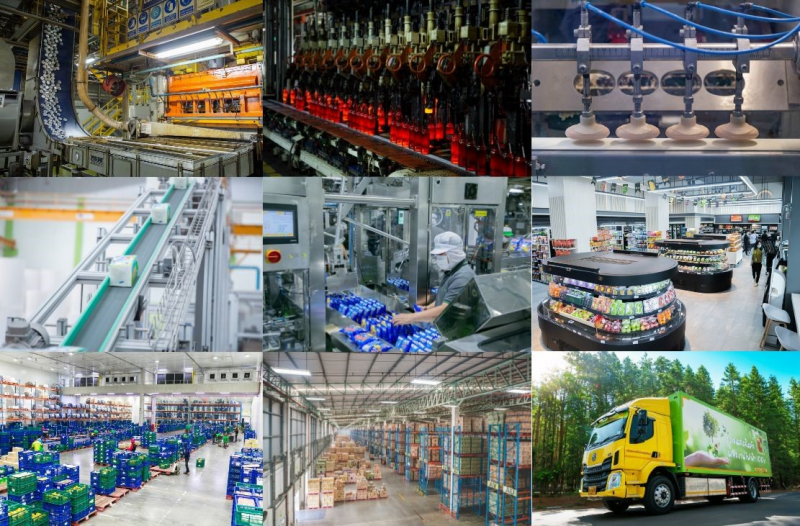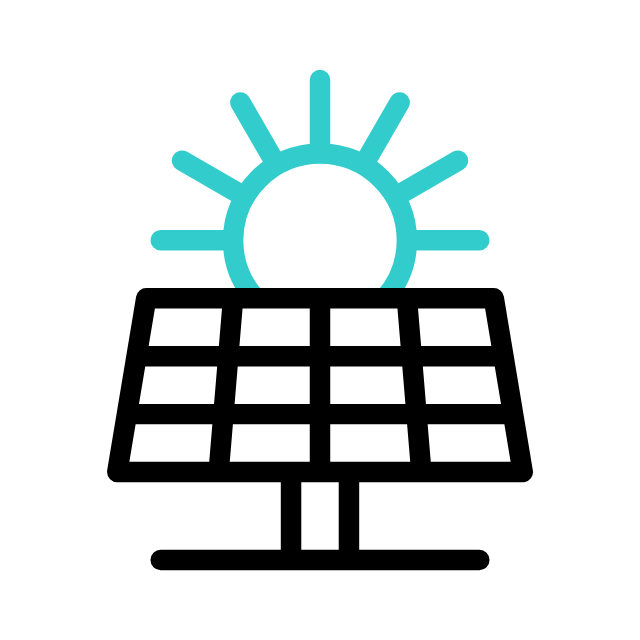
test

2 End hunger, achieve food security and improved nutrition and promote sustainable agriculture

goal 3

goal 4

goal 5

goal 6

goal 7

goal 8

goal 9

goal 10

goal 11

goal 12

goal 13

goal 14

goal 15

Goal 16
16.3: Promote the rules of law and the national and international levels and ensure equal access to justice for all.
16.5: Substantially reduce corruption and bribery in all their forms
16.7 Ensure responsive, inclusive, participatory and representative decision-making at all levels
16.b: Promote and enforce non-discriminatory laws and policies for sustainable development

Goal 17
ENERGY MANAGEMENT
Long Term Target: In 2032 reduce 15% of non-renewable energy from base year (2021)
As a consequence of continued economic growth and development, energy demands continue to grow, resulting in the continued and increase emissions of environmental damaging greenhouse gas emissions (GHG), contributing to climate change and a series of devastating environmental and social consequences to the planet, impacting operations through increase operating expenses, as natural resources are impacted from environmental impacts. For this reason, effective energy management is required to appropriately manage operational energy generation and consumption, to minimize negative environmental and social impacts. In addition, effective energy management also safeguards BJC's operations against potential environmental violations, allowing BJC to continue being ‘Your Trusted Partner for a Sustainable Better Living’.
BJC recognizes the importance of energy management which directly affects the cost of the company and the impact to environment. Therefore, BJC has included energy management in the group-wide environmental policy with a focus on energy efficiency and increasing the use of clean and renewable energy by 15% by 2032 (from the base year 2021). Each business unit has set a policy and procedure to manage and conserve energy in accordance with their business environment. For example, retail business groups have set up an energy conservation policy and communicate it to every store to follow, aiming to achieve energy efficiency and maximum benefit. Moreover, BJC also expects our suppliers to have proper energy management. Thus, BJC has included energy management as a part of Supplier Code of Conduct and comunicate it to suppliers. Energy management is also one of the most important topics in BJC's supplier risk assessments.

Energy Management Process
This involves conducting energy audits to identify opportunities for improving energy performance, managing energy costs, and reducing GHG emissions from energy use. The interconnected nature between climate change and energy has longed been observed by BJC, acknowledging that effective energy management will allow BJC to minimize its nagative contributions towards climate change, while benefiting from various new opportunities should it succeed in the management ofenergy. For this reason, BJC has integrated both climate change and energy criteria into its long-term 1+5 Strategy, established to drive BJC towards becoming a Net Zero GHG Emission by the year 2050, in conjunction with the contribution towards the Thailand Alternative Energy Development Plan 2018-2037. Following the operational guidelines and expectations outlined within the corporate-wide Environmental Management Policy, BJC continues to identify, develop, and implement, effective initiatives which assists in monitoring and improving operational energy utilization throughout the value chain.
Commitment to Sustainable Energy Use
BJC is committed to reducing greenhouse gas (GHG) emissions from Scope 1 and Scope 2 sources by optimizing energy consumption across all operations. In line with our sustainability strategy, we have set a clear target to reduce non-renewable energy consumption by 15% across all business units—including Consumer, Packaging, Healthcare&Technical, and Retail.
Our energy management approach is driven by the principles of continual improvement, technological innovation, and strict adherence to international standards such as ISO 50001: Energy Management Systems. By implementing structured energy performance monitoring, investing in energy-efficient technologies, and expanding the use of renewable energy such as solar power, which aim to both minimize our environmental impact and enhance operational efficiency.
Performance and Impact
Through these initiatives, BJC has significantly improved its energy intensity and reduced Scope 2 GHG emissions. Our commitment to renewable energy and operational efficiency not only supports our climate transition plan but also strengthens our competitive advantage in an evolving regulatory and market landscape. As a result, the energy consumption figures are shown in the table below;
|
Total Energy Consumption (MWh) |
2021 |
2022 |
2023 |
2024 |
Target for 2024 |
|
 |
Total Energy Consumption |
2,903,463 | 2,922,197 | 2,897,629 | 2,940,725 |
|
|
Percentage of Total Energy Consumption (%) |
100 |
100 |
100 |
100 |
||
|
|
Energy Intensity |
1,832.99 | 1,757.18 | 1,629.71 | 1,600.83 |
|
|
|
Total Non-Renewable Energy Consumption |
2,850,909 |
2,864,271 |
2,829,396 |
2,826,751 |
2,850,000 |
|
Percentage of Total Non-Renewable Energy Consumption (%) |
98 |
98 |
98 |
96 |
||
|
Non-Renewable Fuels Purchased and Consumed |
1,665,997 | 1,647,184 | 1,667,118 | 1,649,058 |
|
|
|
Non-Renewable Electricity Purchased |
1,183,807 | 1,215,392 | 1,160,015 | 1,175,238 |
|
|
|
Steam and Other Energy (non-renewable) Purchased |
1,105 | 1,695 | 2,263 |
2,455 |
|
|
|
|
Total Renewable Energy Consumption *Renewable Energy Sources Include Solar Power |
52,554 |
57,926 | 68,233 | 113,973 |
|
|
Percentage of Total Renewable Energy Consumption (%) |
2 |
2 |
2 |
4 |
|
|
|
Data Coverage (as % of denominator) |
89.98 |
91.37 |
91.42 |
91.81 |
|
|
|
Fuel and Electrical Power use |
2021 |
2022 |
2023 |
2024 |
|
|
Percentage of Total Non-Renewable Fuel and Electrical Power use (%) |
100 |
100 |
100 |
100 |
|
|
Percentage of Non-Renewable Fuels Purchased (%) |
59 |
58 |
60 |
58 |
|
|
Percentage of Consumed Energy from the grid (Non-Renewable Electricity Purchased) (%) |
41 |
42 |
40 |
42 |
|
| Total Electrical Power use (MWh) | 1,183,807 | 1,215,392 | 1,160,015 | 1,183,213 | |
|
Percentage of Electrical Power use from Renewable Sources (%) |
4 |
5 |
6 |
10 |
|
|
Energy Consumption (Outside the Organization) (MWh) |
2021 |
2022 |
2023 |
2024 |
|
|
Energy Consumption (Outside the Organization) |
69,891 |
67,338 |
75,493 |
76,999 |
|
BJC Big C Solar Rooftop
|
Year |
Site |
Installed |
|
|
2021 |
45 | 38 | |
|
2022 |
46 | 39 | |
|
2023 |
69 | 58 | |
|
2024 |
102 | 80 | |
Remark: The number of operations 1,837 site refers to the total number of domestic Big C stores (excluding franchises), domestic factories, distribution centers,and the headquarters.
In 2024, Big C further expanded its renewable energy efforts by installing solar panels at 2 Mini Big C branches and 88 Hypermarket branches, bringing the total number of installations across BJC Big C operations to 102 sites. This initiative significantly increased the company’s overall renewable energy production to over 95,000,000 kWh.
Green Logistics
The company has set targets related to the environmental performance of its own logistics operations; BigC Vehicles has a target transition from diesel-powered transport to electric vehicles to replace 50 vehicles by 2026, and the company has set targets related to the environmental performance of outsourced logistics; BJC Logistics Outsourced has a target transition from diesel-powered transport to electric vehicles to replace 8 vehicles by 2026. Both owned and outsourced logistics operations of the company have programs to promote the use of clean energy by partnering with 3PL transportation providers to transition from diesel-powered transport to electric vehicles (EVs) for product deliveries.
For more information on BJC's sustainability performance, please refer to the BJC Sustainability Report 2024.

